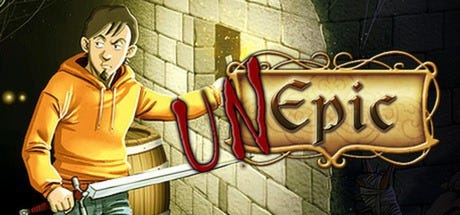Trending
Opinion: How will Project 2025 impact game developers?
The Heritage Foundation's manifesto for the possible next administration could do great harm to many, including large portions of the game development community.
Why Steam Direct was the last hope for indies and became their last tear. Now, Steam is full of cloned games, terrible titles and good ones become hidden gems for not having enough visibility.

Are you an indie developer who wants to release a game on Steam?
If the answer is yes, it’s gonna be tough, not because I say so, but because of SteamSpy’s report of some of the latest releases: https://twitter.com/Steam_Spy/status/908305432858513409

What does this mean?
It means that, unless you already have people waiting for your game OUTSIDE OF STEAM or thousands of youtubers talking about your game, Steam won’t be giving you any visibility and won’t sell more than a few copies.
It doesn’t matter if your game is good, Steam will only promote the best selling games (obviously), but won’t give the chance to great gems to be known if their sales are irrelevant for not having enough visibilty during the launch period.
When Steam started, every game released was receiving feedback and if it wasn’t selling it was YOUR FAULT for not making a good title. Being able to enter on Steam’s catalogue was the actual problem unless you were a well reputated company.
Tons of developers wanted to join that line-up because it was a way to monetize their projects and after some time Steam allowed developers to do so with the creation of Greenlight (2012).
Developers were charmed by it, they could try to show what they could do via Greenlight and didn’t need to be a company with a lot of experience. A great example of this was UnEpic:
https://steamcommunity.com/sharedfiles/filedetails/?id=93055432
UnEpic had a lot of success on Steam and needed a huge effort to succeed on Greenlight.

At the beginning of Greenlight, a developer needed lots of votes to be able to succeed. But the time passed and Valve started relaxing. The result was Greenlight projects being published with less than 100 positive votes. That started filling Steam with terrible quality games.
That’s why a big amount of developers and users ended up complaining about the situation.

What was the measure adopted by Valve? They announced Steam Direct as a preventive way to have those kind of games. When it was announced (but not implemented) they teased the publishing fee between 100$ and 3000$.
This announcement resulted in lots of developers launching their Greenlight campaigns in order to succeed before Steam Direct was implemented, to avoid a possible extremely high fee.
This made it all worse as a high amount of games were succeeding and joining Steam’s catalogue.
But the worse part was Valve announcing Steam Direct’s official fee: 100$. What did this mean? It meant any developer could publish their game on Steam for 100$.

This ended up killing Steam as a gaming platform for indie developers and in exchange has made lots of bad and clonic games appear everywhere.
For example, https://twitter.com/xyaw/status/898293490785722368

As a serious developer I’d have prefered the fee to be $3000 and deductible from future sales.
For a company that’s been 1 or 2 years creating a game, spendind $3000 is not a great investment and we’d avoid those people/companies releasing games that are basically clones of each other.
For example, last week we launched Caveman Warriors on Steam, and also on PS4 and Xbox One. We knew our Steam sales would be low, but numbers have been dramatically terrible, nothing to compare to other platforms.
Valve offers visibility to developers with the News tab, but that list is very short and you’re there for just a small amount of time.
In our case, we were there for just a couple of hours and that day 80 more titles were being released! (Including some AAA powerhouses) and that gave us terrible organic promotion on the store. If instead of 80 games it’d have been 10, we’d probably had sold more copies.
That being said, our game may not appeal people’s taste and maybe ForkPacker has something to say to us.
https://twitter.com/ForkParker/status/909966992337018880
Any way, good luck to all indie developers. We’ll come back stronger in february 2018 but if this doesn’t get better we may go work in McDonald’s.
Read more about:
BlogsYou May Also Like